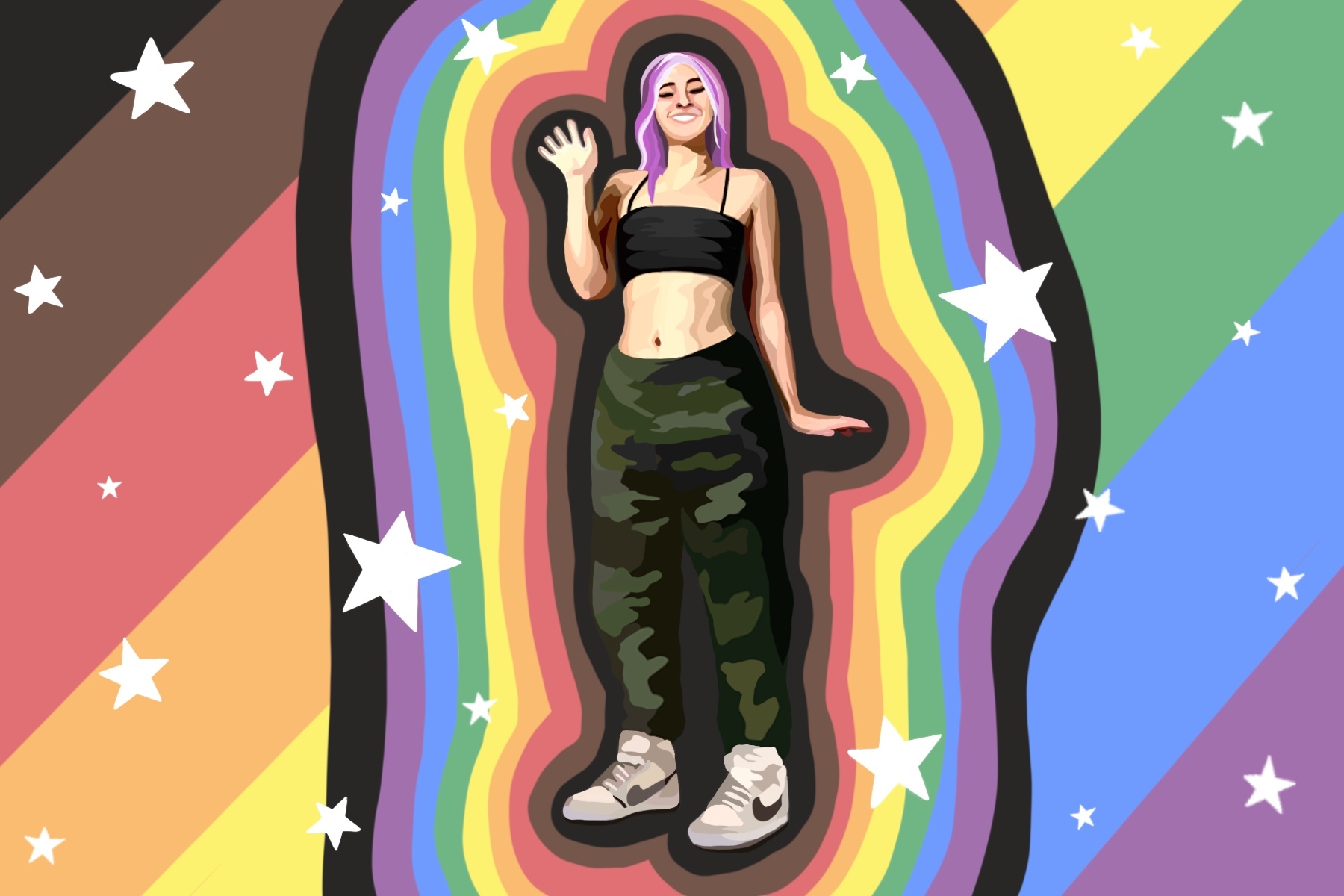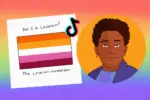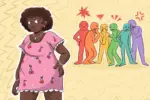The act of coming out was once largely criticized in societies all across the globe, but it has now become an act of joyful liberation (to most). It is even celebrated on October 11, National Coming Out Day. LGBTQIA+ people are encouraged to be loud and proud about who they are and to state their orientation and gender to the world. The only problem: It’s nobody’s business but your own.
It isn’t just that LGBTQIA+ people are encouraged to come out; it is that coming out is now seen as an obligation. How dare you hold a conversation with someone and not state your gender? You must hate someone if you’ve gone months and haven’t told them your sexuality. Coming out is not just an option in our heteronormative and cisnormative society, but a requirement and a precursor to every interaction.
It’s actually okay not to come out. All these myths surrounding what coming out is treat it as an end goal, a natural part of the LGBTQIA+ process. But coming out does not have to be a step in your identity journey; it can be or it cannot be. Your coming out is yours alone, and no one has the right to tell you otherwise.
Coming out is not something you owe to the public. Your co-worker, family, friends, random grocery store attendant — they do not need to know how you identify. They have no business knowing these personal details about you when it does not pertain to them. Even if one of those people happens to be a member of the LGBTQIA+ community, you don’t have to share your story with them if you don’t desire. You choose how you present yourself in each of these spaces.
If you want to be known as the peppy coworker, the activist cousin, the affectionate friend or whatever you connect with, go for it! Don’t let society tell you that you have to come out. You are not just the bisexual colleague, the trans cousin or the asexual friend. You are who you want to be. You are a whole person who is more than your gender and sexuality. Organizations like UK Black Pride get it right when they speak to “the spiritual, emotional, and intellectual health and well-being” of LGBTQIA+ people who are more than their queerness.
It may not be in a person’s best interest to come out, and the LGBTQIA+ community and society at large needs to acknowledge and accept that. There is still discrimination to this day against LGBQTIA+ people. It exists in realms ranging from health care to one’s workplace and even home life. If it’s not safe for you to come out, know that you do not have to do it. Your safety is more important than society’s pressure for you to come out when you’re not ready. There is no mandate dictating when you have to come out or that you ever have to do it at all. It’s perfectly okay never to come out publicly.
If you go your whole life and only admit your complete identity to yourself, you are still valid. Not stating your sexuality or gender does not erase or invalidate that aspect of you. You are you whether others know about it or not. You are not living a lie if you don’t tell people. It’s society’s assumption that everyone is straight or cisgender that promotes that concept. You are not ashamed of the LGBTQIA+ community or an enemy to the LGBTQIA+ community if you don’t state that you are a member.
The whole point of coming out is so that the people who do so can live their happiest lives. Many people feel liberated by being out to the world. It has countless benefits. Coming out is about empowerment. But if coming out will result in greater despair or adversity, stripping away your security or dignity, you do not have to do it.
It’s also acceptable to come out only to certain people but not others. Coming out is not a one-size-fits-all scenario; it is entirely personal and unique to everyone. The way in which you come out may look nothing like how the media romanticizes it, or it can look exactly like those famous coming-out stories. It’s possible to change the way in which you come out to certain people. Maybe you have a formal conversation with your coworker over lunch, mention it slyly with a friend while watching a movie, and never come out to your family. And how little or how much you say is up to you.
If you have multiple identities that don’t follow the heteronormativity and cisnormativity pervading society, you may choose to disclose all of those labels or only some of them. It’s okay to tell some people your gender identity and others your sexuality if that’s what feels right to you. No one has any claim to that information, so it’s up to your discretion which aspects they get to know.
If you have shared with people one of your identifiers and it changes, you do not have to “re-come out.” Gender and sexuality are fluid. If you’ve previously revealed yours to somebody and then it happens to change, you are not obligated to inform them. Maybe you had a falling-out with that person; maybe they would be more accepting of your previous identity than your new one; or maybe your new identity largely falls in line with societal perceptions of your old identity. Telling someone once doesn’t give them a free pass to every new update on your identity.
Your identity is your personal choice. How you choose to express it is also your personal choice. Do not let society pressure you to come out if that’s not your decision. You are still loved, valued and a part of the community regardless of how you choose to express yourself. Come out or don’t come out. Do what is best for you.
Note: If you do decide you want to come out, it may be helpful to check out some resources on safe ways to do so! The Trevor Project is just one of many guides and resources you can use to help you with your own journey.
















